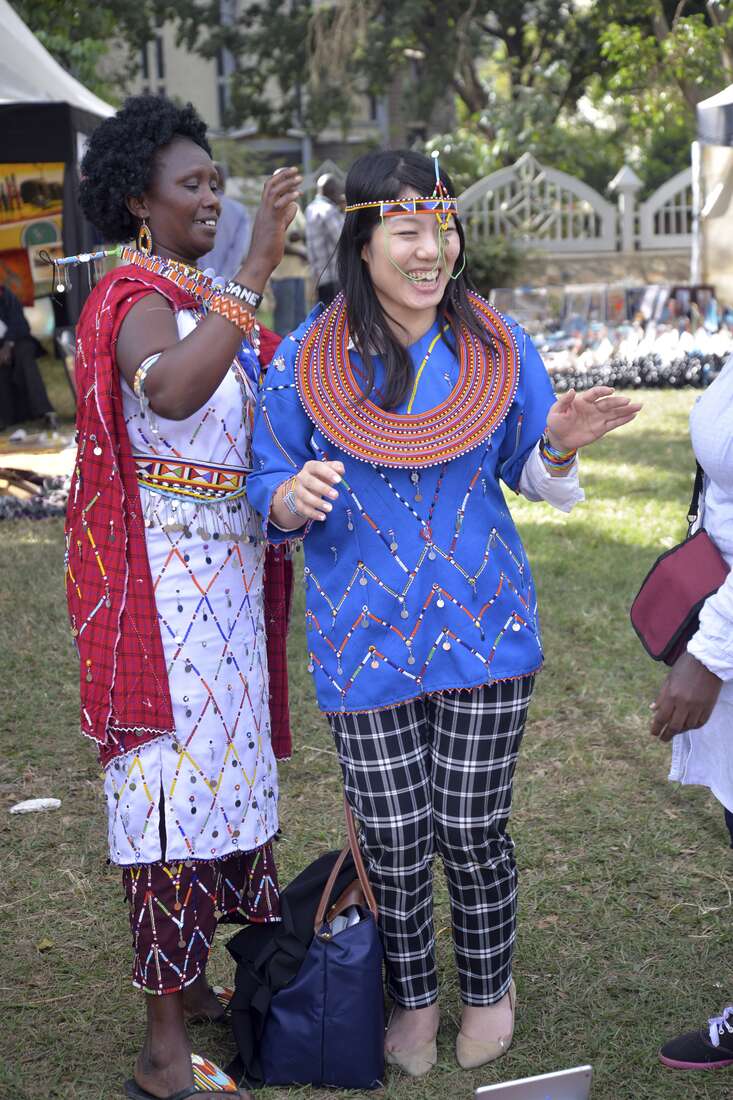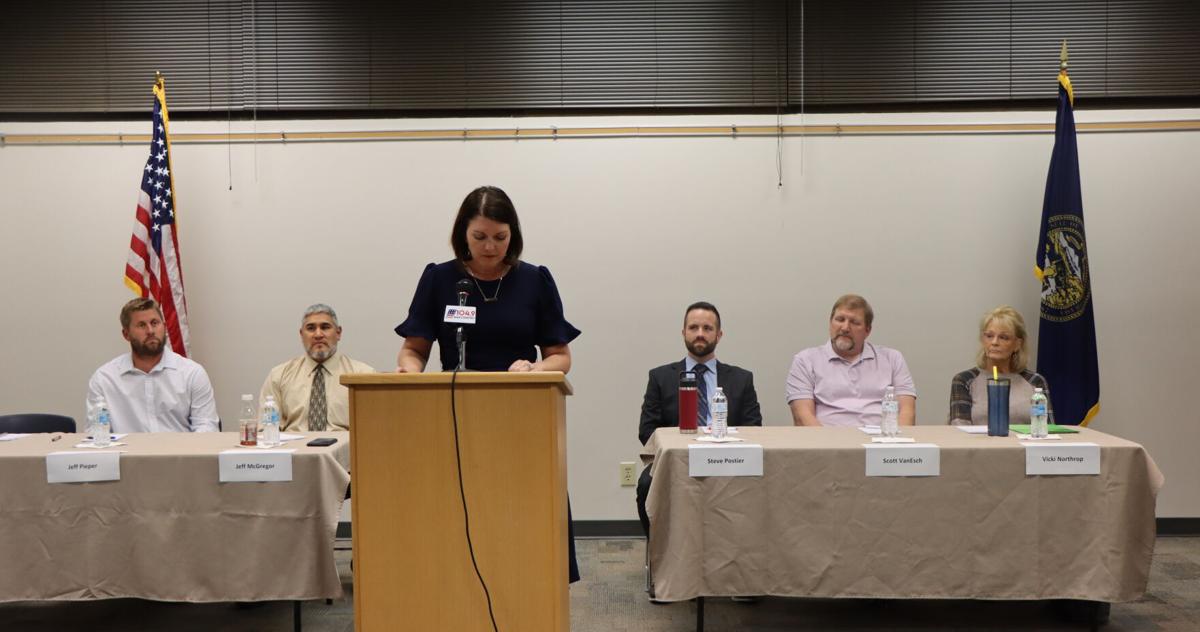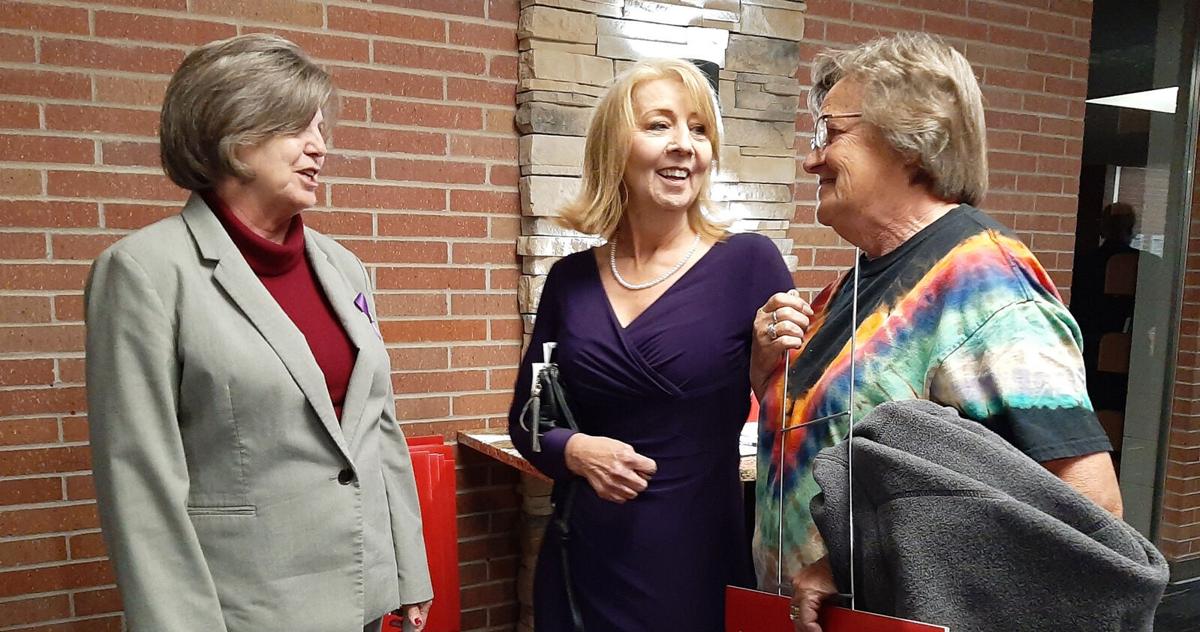TICAD forum sets the stage for new agreements between Japan and Kenya

Ideas & Debate
TICAD forum sets the stage for new agreements between Japan and Kenya
Monday, April 18, 2022
A Japanese delegate is outfitted in traditional Maasai regalia by a Kenyan trader during the Tokyo International Conference on African Development in Nairobi in August 2016. FILE PHOTO | NMG
Summary
- Japan appreciates Kenya’s positive role as an anchor of stability in East Africa.
- The Kenya Coastguard Service uses the 17 patrol vessels provided by Japan to maintain order at sea.
- As part of preparations for TICAD 8, Japan and Kenya will co-host the Japan-Africa Public-Private Economic Forum on May 3 in Nairobi.
On April 1, I presented my credentials to President Uhuru Kenyatta. The President’s warm words of welcome reflected the long-standing friendship between our two countries.
My first encounter with Kenya dates back to 1997-1998 when I was stationed in New York at the Permanent Mission of Japan to the United Nations. At the time, Japan and Kenya were non-permanent members of the Security Council.
Japan sat next to Kenya and during those extremely busy days I became good friends with my Kenyan colleagues, one of whom was Amina Mohamed, currently Cabinet Secretary for Sports, Heritage and Culture, who had then moved to New York as part of the Security Council team. I look forward to renewing our friendship after so many years.
Japan appreciates Kenya’s positive role as an anchor of stability in East Africa. The other day I visited the Kenya Defense Forces International Peace Support Training Center where instructors from the Japan Self-Defense Force provided training on heavy engineering equipment to 35 servicemen from the Kenya, Uganda and Ghana.
The training was part of a United Nations initiative to strengthen peacekeeping operations. Japan is one of its biggest contributors. We also cooperate to promote the Free and Open Indo-Pacific (FOIP).
The Kenya Coastguard Service uses the 17 patrol vessels provided by Japan to maintain order at sea. As Japan plans to join the UN Security Council as a non-permanent member the next year, I hope to strengthen this cooperation.
In August, Japan will co-host TICAD 8 [Tokyo International Conference on African Development] in Tunisia. Japan started organizing TICAD with African heads of state in 1993, before other countries started to organize similar meetings.
As you may remember, TICAD 6, the first meeting to be held in Africa, was held in Nairobi in 2016. It is a real sign of the real trust that exists between our two countries. Since 2016, the number of Japanese companies operating in Kenya has doubled to over 100.
Remarkably, our business ties have expanded not only in number but also in scope – from trade to local production and investment in Kenyan businesses.
Personally, I am interested in connecting Japanese SMEs and startups with their Kenyan counterparts. As you may know, Japan is facing depopulation. Many SMEs are based in the regions and specialize in sectors such as processing and agricultural machinery, environment and health.
Many are grappling with challenges such as shrinking local markets and lack of skilled labour. There is potential for Kenya to benefit from their activities and also for Japanese companies to benefit by finding new partners and expanding their activities.
As part of preparations for TICAD 8, Japan and Kenya will co-host the Japan-Africa Public-Private Economic Forum on May 3 in Nairobi. The meeting, bringing together ministers and business leaders from Japan and Africa, will lead to many new partnerships and projects.
Kenya is the largest recipient of Japanese development assistance in sub-Saharan Africa. Our cooperation has been oriented towards education, health, agriculture, energy, forestry, infrastructure, etc.
Based on Japan’s experience, human resources are the most important asset for a country’s development, and therefore, we give high priority to education and health.
First, Japan focused on math and science in primary and secondary education and supported the Jomo Kenyatta University of Agriculture and Technology (JKUAT).
Second, Japan supported KEMRI [Kenya Medical Research Institute] and Kenya’s efforts to achieve universal health care. Our cooperation has helped Kenya better cope with Covid-19. With aid from Japan spanning decades, Kenya is now supporting other African countries in education and health.
Japan appreciates Kenya’s proactive climate change policy and has long supported geothermal power generation in Olkaria. Currently, nearly 40% of Kenya’s geothermal power has been developed with Japanese assistance, with an additional 134 MW under construction.
Having trained over 300 people, Kenya now has the capacity to develop, operate and maintain geothermal energy, and provides support to other countries.
Japan and Kenya have entered into a Joint Credit Mechanism (JCM) agreement to reduce greenhouse gas (GHG) emissions. In February, there was a groundbreaking achievement when GHG credits were issued for the first time in Africa for a project to install a 1.6 GWh solar photovoltaic system at a salt factory in Kilifi County. .
Our cooperation with the Kenya Forestry Research Institute (KEFRI) contributes to the goal of 10% forest cover and the introduction of improved tree varieties suitable for arid and semi-arid areas.
Japan’s support for irrigation infrastructure and capacity building has contributed to increased productivity and increased rice production in Mwea.
Japan has a huge infrastructure development project for the Mombasa Special Economic Zone. The completion of the infrastructure has the potential to significantly improve connectivity with the Northern Corridor, promoting trade, investment and new industries.
Next year, being the 60th anniversary of Kenya’s independence, is also the 60th anniversary of our diplomatic relations. It is an important occasion to celebrate past achievements and to consider future cooperation.






